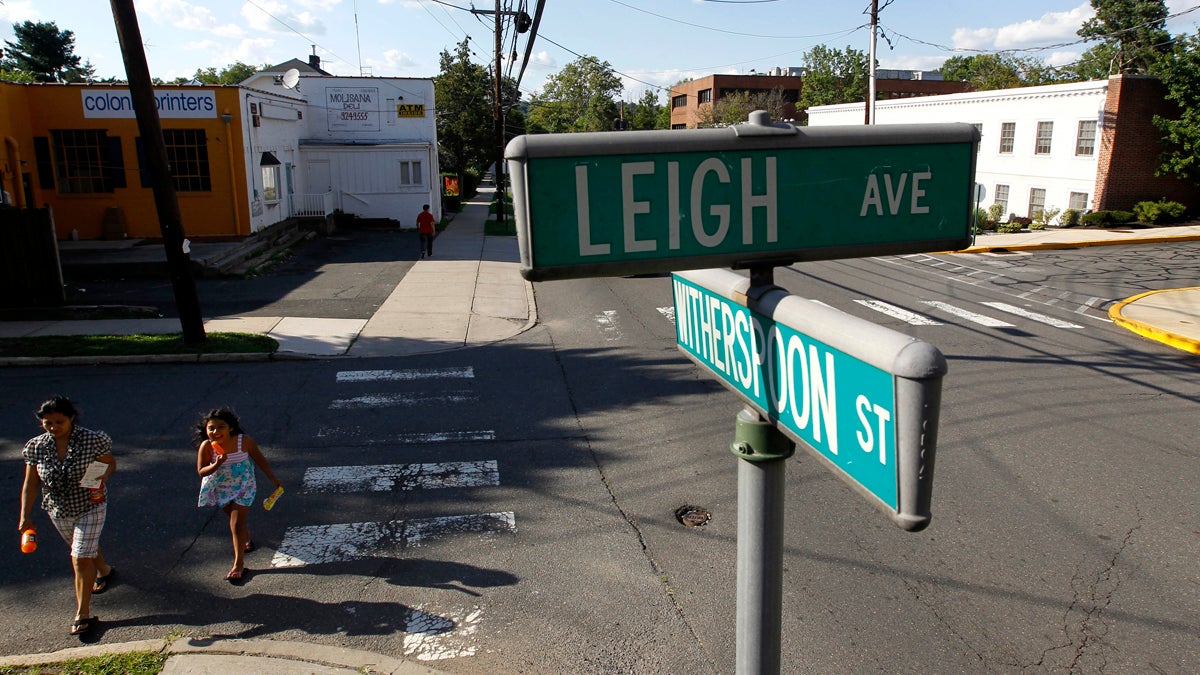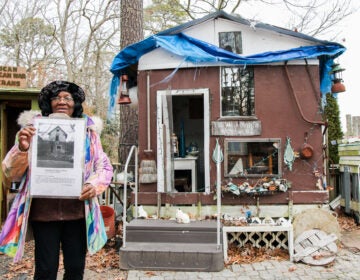Rutgers professors say merging N.J. towns unlikely to save money

In this Aug. 11, 2011 photo, Rosalia Noyola, left, walks with her daughter Brissa Bautista, 7, near the intersection of Leigh Avenue and Witherspoon Street in Princeton, N.J. According to officials, Leigh Avenue is a good place to see how residents are divided geographically by a diagonal border that separates the Borough of Princeton and Princeton Township. Residents voted to merge. For years, governors have pushed municipal consolidation which shows just how hard it is to get New Jerseyans to make such a change. (AP Photo/Julio Cortez)
A growing chorus of voices has been calling for some of New Jersey’s 565 municipalities to consolidate, merging two towns into one.
Advocates say it helps towns cut costs by eliminating redundancies, and that can put the brakes on rising property taxes.
But two Rutgers researchers have compiled new data that casts doubt on that argument.
Using numbers from the State Division of Local Government Services and census data, the researchers found that, excluding resort towns, it costs about the same per capita to run any municipality in New Jersey, regardless of size.
That means even if two small towns become one large town, the savings could be minimal.
Marc Pfeiffer, Assistant Director of the Bloustein Local Government Research Center says the idea that New Jersey has too many municipalities is a “folk hypothesis.” While he acknowledges that consolidation works occasionally, he says it isn’t always the answer.
“Arbitrary notions of that hypothesis that just consolidating is going to be cheaper may sound good on the surface, and for example, yes, you don’t need two police chiefs,” said Pfeiffer. “But now with a larger department you made need a chief and a deputy chief. And you may need another captain.”
But to advocates, money is money. Even if consolidation leads to moderate savings, they say it’s worth it.
“It’s about time that New Jerseyans get together and start working on how we take the steps forward so that we can become a sustainable state,” said Gina Genovese, the executive director of Courage to Connect New Jersey, a pro-consolidation group.
The municipal consolidation debate hit a peak last year, when Princeton Borough and Princeton Township finalized their merger. To advocates of consolidation, the fact that two large towns were able to join together was a cause for celebration. But opponents saw the minor cost-cutting as a sign that municipal consolidation might not be the best answer to property tax relief.
But to Genovese, the state is in financial trouble and municipal consolidation is one of the best solutions. “To say that what we have now is sustainable and working, I think is a little bit absurd.”
WHYY is your source for fact-based, in-depth journalism and information. As a nonprofit organization, we rely on financial support from readers like you. Please give today.




